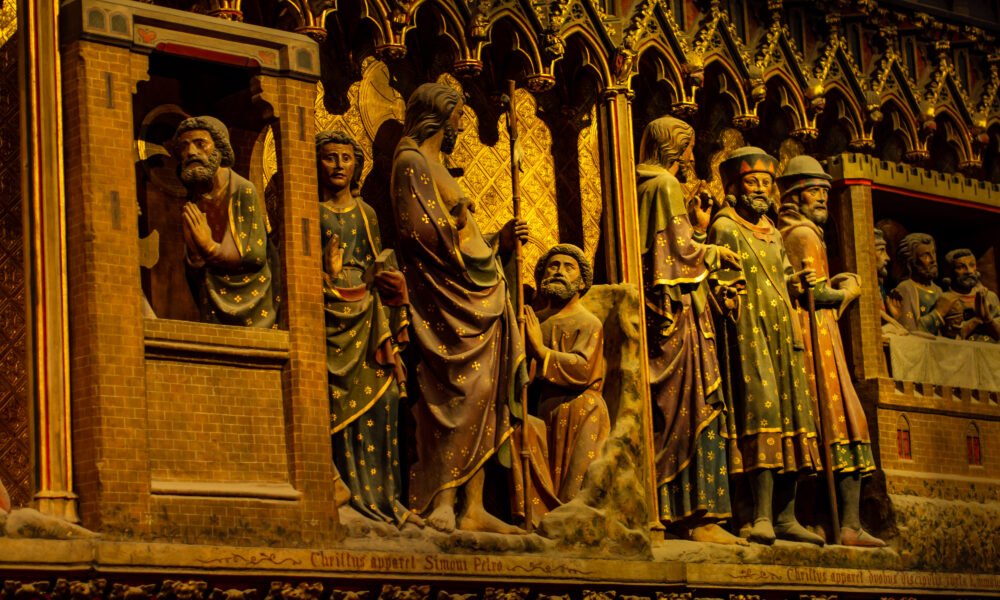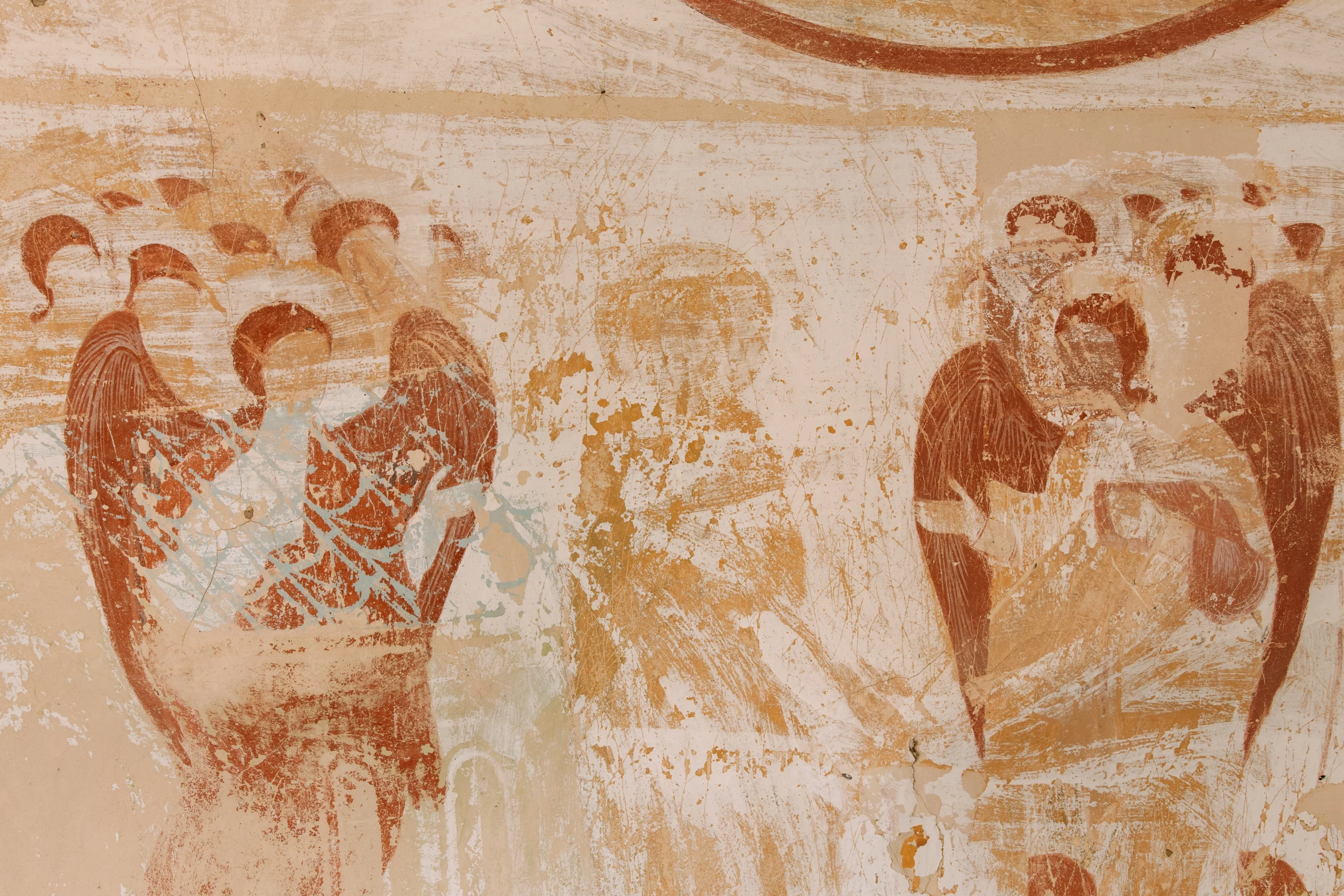The Notre-Dame de Paris is not only one of the most iconic landmarks of France but also a masterpiece of Gothic architecture that has stood the test of time for centuries. Situated in the heart of Paris, on the Île de la Cité, this magnificent cathedral has drawn millions of visitors, pilgrims, and art lovers from around the world. While its stunning exterior garners much attention, the interior of Notre-Dame de Paris holds a wealth of beauty, history, and spirituality that is just as captivating.
In this blog, we will delve into the intricate details of Notre-Dame’s interior, exploring its awe-inspiring architectural elements, sacred art, and the spiritual significance that has shaped the cathedral’s place in both religious and cultural history.
1. The Grandeur of Gothic Architecture
Stepping inside Notre-Dame de Paris feels like entering another world—one of towering arches, ethereal light, and a serene yet imposing atmosphere. Designed in the French Gothic style, the cathedral’s interior showcases the architectural innovations that were revolutionary during the Middle Ages. The soaring ribbed vaults, pointed arches, and flying buttresses allow for a spacious and open nave, contributing to the overwhelming sense of verticality that draws visitors’ eyes upward.
The cathedral’s nave, which stretches over 130 meters long, is flanked by two rows of massive stone pillars that support the vaulted ceiling. These columns are not just structural but symbolic, representing the steadfastness of faith and the bridge between the earthly and the divine. Walking through the nave, one can’t help but feel dwarfed by the sheer scale of the architecture, which was designed to inspire awe and reverence.
2. The Stained Glass: A Kaleidoscope of Color and Faith
One of the most breathtaking features of the Notre-Dame interior is its stained glass windows, which filter sunlight into a dazzling array of colors, bathing the cathedral in an otherworldly glow. These windows, many of which date back to the 13th century, tell biblical stories, depict saints, and illustrate the lives of Jesus and the Virgin Mary. The Rose Windows are among the most famous in the world, particularly the North Rose Window, which features over 80 panes depicting scenes from the Old Testament.
The stained glass is not just a decorative element; it was a powerful tool for storytelling in an age when most people were illiterate. The vibrant images served as visual sermons, teaching and inspiring the faithful as they stood in contemplation. Each panel is intricately detailed, making the glasswork not just a religious experience but also a marvel of medieval artistry and craftsmanship.
3. The Sculptures: Carvings of Devotion
Notre-Dame’s interior is adorned with an incredible array of sculptures and carvings that enhance the cathedral’s spiritual atmosphere. From the elegant stone figures of saints and angels that line the aisles to the gargoyles perched above, every figure has been carefully crafted to convey a sense of holiness and protection. The cathedral’s choir screen, a stone barrier separating the choir from the nave, is an especially notable work of art. Carved with intricate scenes from the Passion of Christ, this masterpiece of Gothic sculpture serves as a poignant reminder of the central tenets of Christian faith.
One cannot overlook the magnificence of the High Altar, surrounded by sculptures of the Pietà (a representation of Mary holding the body of Jesus) and flanked by angels. These figures, carved in the 18th century, are a perfect blend of religious devotion and artistic expression, drawing the faithful to contemplate the sacrifice and resurrection of Christ.
4. The Treasury: A Repository of Sacred Relics
Located within the Notre-Dame de Paris is the cathedral’s treasury, which houses some of the most revered relics in Christianity. Among these is the Crown of Thorns, believed to have been worn by Jesus Christ during his crucifixion. This relic is displayed in a special reliquary made of gold and precious stones, offering visitors a tangible connection to the history of the Christian faith. Other treasures include the True Cross and one of the Holy Nails used in the crucifixion.
The treasury is also home to an impressive collection of liturgical objects, including elaborately decorated chalices, crosses, and vestments. Many of these items date back to the medieval period, reflecting the cathedral’s long-standing importance as a center of religious power and devotion.
5. The Great Organ: A Marvel of Music and Engineering
One of the most notable features of the Notre-Dame interior is its great organ, one of the largest and most famous in the world. Originally installed in the 13th century and expanded over the centuries, this instrument boasts over 8,000 pipes and five keyboards. The organ’s intricate sound fills the vast space of the cathedral, creating an atmosphere of reverence and awe.
For centuries, the Notre-Dame organ has been played by some of the world’s most renowned organists, and its powerful, resonant tones have accompanied countless religious ceremonies, from royal weddings to state funerals. Even today, the organ is a symbol of Notre-Dame’s enduring role as a place of worship and cultural significance.
6. Spiritual Significance and Pilgrimage
The interior of Notre-Dame de Paris is not merely a feast for the eyes; it is a place of profound spiritual significance. For over 850 years, this cathedral has been a sanctuary for those seeking solace, reflection, and communion with the divine. Pilgrims from around the world have walked through its doors, drawn by the cathedral’s role as a center of Catholic worship and its reputation as a place of miracles.
The Chapel of the Virgin, located behind the High Altar, is one of the most popular spots for prayer and meditation. Here, a statue of the Madonna and Child serves as a focal point for devotion, symbolizing Mary’s role as the mother of Christ and the church. The confessionals lining the side aisles are also frequently used by visitors seeking spiritual guidance.
Notre-Dame has witnessed the coronation of kings, the canonization of saints, and the mourning of national tragedies. Its walls resonate with the prayers of generations, making the cathedral not just a historical monument, but a living, breathing center of faith.
7. The Impact of the 2019 Fire and Restoration Efforts
On April 15, 2019, a devastating fire engulfed Notre-Dame de Paris, causing significant damage to the roof, spire, and parts of the interior. The world watched in shock as flames threatened to consume this architectural and spiritual treasure. Fortunately, many of the interior features, including the organ, the Rose Windows, and most of the relics, were spared.
Restoration efforts have been underway since the fire, with a focus on preserving the historical and artistic integrity of the cathedral while ensuring its structural stability for future generations. The restoration of Notre-Dame’s interior is not just a technical challenge but a deeply emotional and spiritual task, as it involves the conservation of centuries-old art and religious heritage.
Conclusion
The interior of Notre-Dame de Paris is a breathtaking blend of history, art, and spirituality. From its soaring Gothic architecture and luminous stained glass to its revered relics and awe-inspiring organ, every element of the cathedral invites visitors to reflect on the divine and the eternal. Despite the challenges of recent years, Notre-Dame remains a symbol of faith, resilience, and the enduring power of human creativity. Whether you visit as a tourist, an art lover, or a pilgrim, the experience of stepping inside this iconic cathedral is one that stays with you long after you leave its hallowed halls.









